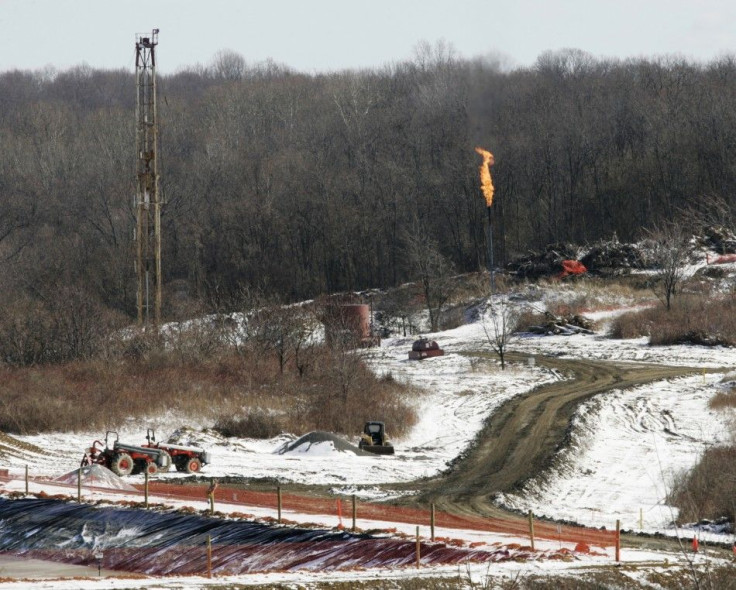Fracking Opponents Don't Like Ohio's Proposed Disclosure Law

Ohio legislators will vote this week on a set of new natural gas drilling regulations, including chemical disclosure laws, that opponents say favor natural gas drillers.
Senate Bill 315, which passed that chamber on May 15, would require that drillers disclose the trade name and the total amount of all products, fluids and substances that are used to drill natural gas wells.
State lawmakers are calling the bill one of the toughest in the nation, but environmental and medical groups criticize it for allowing well owners to pick and choose which chemicals they consider as trade secrets, prohibiting doctors from informing their patients about them.
Under the language of the bill, a well owner, driller or operator can withhold from disclosure any fluid or substance or a chemical component in a product, fluid, or substance as a trade secret.
The Ohio House by Thursday could take up the issue on the chamber floor, assuming the bill makes it out of the Public Utilities Committee.
The committee is meeting Wednesday to take up the bill.
Ohio straddles in part both the Utica and Marcellus Shale formations, which have prompted energy development booms in Pennsylvania and West Virginia. Southeastern parts of the state are experiencing a leasing rush ahead of natural gas development, and most of the state is being explored for prospective hydraulic fracturing.
Hydraulic fracturing or fracking involves the pumping of millions of gallons of water into underground rock formations to fracture and release trapped oil and natural gas within. While there is yet no scientific proof, opponents say the drilling practice is dangerous and contaminates groundwater.
The U.S. Environmental Protection Agency is still conducting studies on fracking and is conducting an investigation into possible groundwater pollution in Wyoming.
At the end of 2011, there were five wells in production along Ohio's Utica formation, which encompasses a little over one-third of the state. So far, there are close to 72 wells being drilled, and that number is expected to rise to more than 200 by the end of the year, said Heidi Hetzel-Evans, a spokeswoman for the Ohio Department of Natural Resources.
As of 2009, the state had 38 million barrels of oil in reserves as well as 896 billion cubic feet of natural gas, reported the U.S. Energy Information Administration.
Hetzel-Evans said this latest bill will add to the already stringent rules the state has put in place to govern natural gas and oil drilling.
The state, she said, enacted measures -- a total of 110 -- that force drillers to adhere to well construction standards designed by the American Petroleum Institute, the nation's largest trade group, which also has its own industry guidelines.
The state's health care professionals, however, are not pleased with the bill.
The state's Medical Association, the largest doctor group in Ohio, said the language of the bill prohibits them from sharing information they have with other doctors and their patients, if its protected as a trade secret, reported the Associated Press. That mirrors concerns expressed by health care professionals in Pennsylvania. Ohio doctors singled out language in the bill saying they may not disclose the information for any purpose that is not related to the diagnosis or treatment of an individual who was affected by an incident associated with the production of a well.
Hetzel-Evans said during an emergency, the state can require companies to turn over every detail of their drilling activities, including full disclosures for all chemicals used.
© Copyright IBTimes 2024. All rights reserved.




















